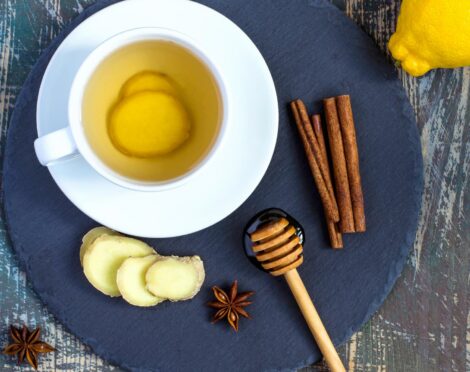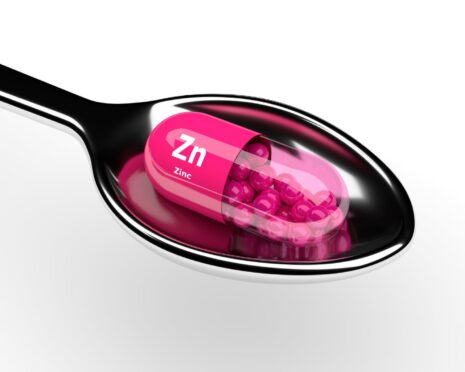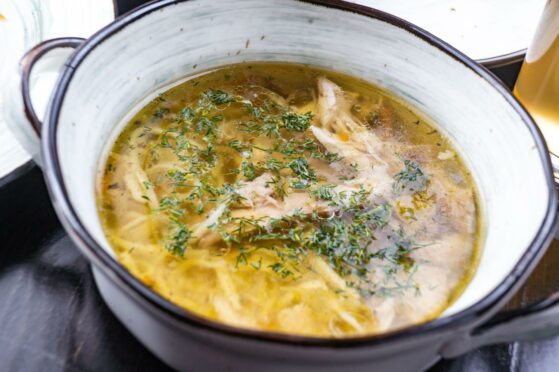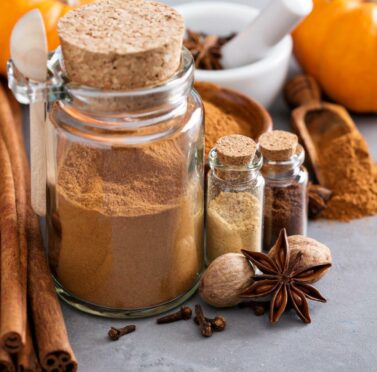We may have spent 18 months trying to avoid one particular bug – but seasonal infections like colds, flus and coughs are on the rise again.
Our immune systems have been more protected than usual – by face masks, distancing measures and reduced social contact.
But as we start to mix more this winter, what’s the truth about things we can do to combat dreaded cold and flu germs?
Supplement in the spotlight
Zinc is the latest mineral in the spotlight. A new study found taking a daily zinc supplement ‘may cut how long respiratory infections last’.
So could mean fewer symptoms of cold, flu, sinus, throat and lung infections – like coughs, stuffed or runny noses, headaches, high temperatures and associated pain.
The research didn’t include Covid-specific data but found people who regularly took zinc had less Respiratory Tract Infections overall, and their symptoms cleared up more quickly when they did.

Other factors to consider include our own general health and immune response, and lifestyle factors like how much sleep we’re getting or how much booze we’re drinking.
But do other classic cold remedies help fight off colds and other nasties?
Chicken soup
Even if you’ve never had a loved one prepare chicken soup for you when you’re bunged up with a cold, you’ve probably seen it happen on TV – and there is logic to this tradition.
It’s packed with phytonutrients (found in garlic, onions and other veg and great for supporting immune function) and anti-inflammatory properties.
Studies also suggest carnosine, a compound found in chicken, could help calm nasal congestion.
But even if it’s just a placebo effect, a steaming bowl of TLC made with love is never going to hurt!
Vitamin C
Popping extra vitamin C when you’re run down with an infection is another classic, whether through supplements, fruit or juice.
But studies say there’s no solid evidence it helps.
That’s not to say vitamin C isn’t very important and helpful for healthy immune systems. We also need it for bones, skin and absorbing iron.
But, with our immune function, we want to support it generally, rather than relying on a ‘quick boost’ when we get ill.
So if you keep getting run down and seem to catch every cold going, it could be worth having a look at your diet and lifestyle or booking a chat with your GP.
Spices
They feature heavily in many traditional medicine and healthcare systems, including Ayurveda from India. And, while small, spices can pack a mighty punch in terms of health-promoting properties.
When it comes to immune function and anti-inflammatory goodness, key examples are turmeric, cinnamon and ginger.
Ginger is known to be excellent for soothing nausea too, so it’s handy if a bout of flu leaves you feeling sickly. Thyme can help ease congestion, and the menthol in mint can help open up nasal passages.
Adding spices to cooking or brewing them up in a tea is will bring benefits of breathing in the steamy aromas too, helping when you’re bunged up.
Honey
Famed for its antimicrobial and antibacterial properties, mixing up a cup of honey and lemon tea when you’re full of cold, or feel one coming, is an age-old remedy.

But does it really help? The good news is actually yes!
Research has found honey may even help reduce cough symptoms.
So a sweet treat that will actually help you fight infection too, what could be better!




